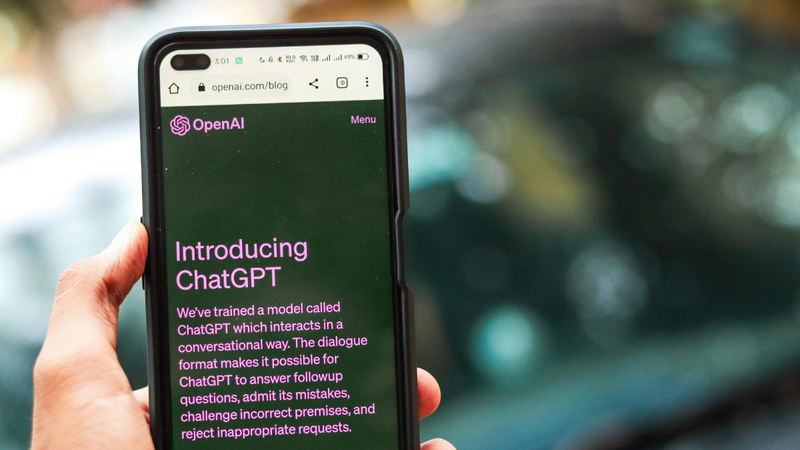“AI is a tool to amplify human ingenuity, not replace it.” – Demis Hassabis, DeepMind Founder
We are on the cusp of an AI revolution. You’ve heard it all before, right? Let’s sidestep all the hype and cut to the crunch. The recent release of Open AI’s Operator tool is a spectre of the post-human services age. If you're in insurance and not planning to use AI, you're not just falling behind, you're falling—as IBM’s former CEO Ginni Rometty infers, "humans who use AI will replace those who don’t".
Yet, it is possible that when it comes to insurance, the most unlikely beneficiary may get the spoils of AI disruption. The answer? Consumer Advice. The professional recommendation of what you should pick. The legal jeopardy of an insurance broker telling a client: 'choose this'.
But why?
AI is inevitably going to reduce the data input costs of trading insurance. That means retail insurance provision costs are going to plummet and advice-giving professionals could decide that recommendations are worth it again. Could advice make a comeback?
This is particularly relevant in the UK context, where advice is a regulated service—and where consumer expectations have been shaped by comparison-led, self-service journeys for over two decades. To anyone unfamiliar with the regulatory nuances of words like 'advice', let’s explain. Advice in insurance effectively means the purveyor is telling the client what to choose. That’s a regulated service. The one doing the recommending is then on hook if the milk turns out to be sour.
The changing landscape of insurance
For UK consumers born after 1999, the idea of a comparison site literally telling you which insurance you should buy and why will be alien. Let’s be clear, comparison sites have done a good job of designing systems that maximise their income, not the consumer outcomes. Regulators have intervened to correct that or try to.
Well, those comparison sites should be taking deep (very deep) breaths now. Operator AIs like OpenAI’s make it laughably easy to create, update, and scale a retail insurance marketplace. You can already upload a spreadsheet to most online LLM premium accounts and it’ll successfully read it, use the rating and generate a price with just basic QA needed to verify.
Yet, when it comes to the story of insurance and AI, it’s worth taking a pause and travelling back in time. There is this often cited assumption that this slightly peeling, marquee industry is somehow bereft of an innovation gene. That’s unfair. Insurance has always been an innovative industry. Traditionally the innovation role fell upon the distribution layer of the sector which, up until the release of Direct Line in 1985, was managed by intermediaries.
Your typical high street broker would create products, arrange quotes and coverages, as well as recommending the best option. Price was king, but claims reputation, balance sheet strength, product wording and market cycles were key components in this genuinely professional advisory process. All in the backdrop of a paper-based office, no internet of self-service tools. Innovation was as essential then as it is now.
The Digital Revolution
In the UK, digital disruption reshaped the insurance landscape far earlier than in many other markets.
Today, ‘digital’ is just life... back then, it was like a tectonic shift. Direct to Consumer moved from the branch, to telephone, to online. High Streets shrank, the app store rose and 'nipping to the shops' became obsolete.
Nonetheless, the direct purchase of insurance by those it seeks to indemnify is a relatively new concept in the context of the sector’s most recent 40 year history. In that time, the simple process of receiving a professional recommendation, based on more than just price, has all but disappeared from the mass market. It goes without saying that the intermediary’s chartered status doesn’t even register as a virtue either.
Consumers shop for cover amidst a deafening, unrelenting price war. Most pick policies they don’t read and typically don’t understand. They rarely spot that the same insurers are behind a number of so-called brands. Those who do read their coverage could sacrifice days of their life doing so. Where’s the incentive to care? Folks are programmed to get it done fast and move on.
It would be fine if the last forty years had created good metrics and outcomes. Sadly, consumers don’t trust, like or believe in insurance any more now than when the first red telephone rolled onto their TV screens. Such has been the ferocity of this culture change that the financial regulator has become incredibly active in trying to put out real and genuine fires of misconduct.
Let’s not over-romanticise the pre-digital broker. There were of course shady players and commission-hungry actors. The fact many advisory and recommendation-driven models left the market somewhat betrays the quality and belief in what was on offer. But the truth remains: pre-digital insurance buyers weren’t as alone as they are now. 'Buyer beware' meant something different and 'Seller Beware' was something the regulator introduced with good intentions.
Because of those sequences of disruption, insurance brokers that are in the market today must be admired. They are the ultimate survivors. They’ll find leveraging AI a peachy prospect. When they begin to wake up to what’s on offer, they will probably start considering how many CPD credits their team is away from Chartered Status.
The future: Brokers and AI
In the UK, direct sites and comparison sites have become undeniably sophisticated, but are ultimately at war with low brand loyalty and churn. Just as quickly as consumers adopted comparison - they could abandon it. Don’t expect the insurers to extend a helping hand. UK insurers who helped usher in comparison as we know it had no idea what would follow. Given the chance many would likely reshape those business models. But hindsight is an easy thing.
In this next revolution, the new guerilla innovators will be the brokers—long dormant from D2C advice, reinvigorated by AI and armed with massively reduced costs. Faced with the threat, comparison sites might start giving you a recommendation after all. Which would make them… professional brokers.
Ready to embrace the future of innovation? Let’s talk about how AI can reshape your approach to business. Reach out here.




